corruption
Criticism of South Korean naval authorities has intensified as it is revealed that the country’s only salvage and rescue ship was equipped with a fish-finding sonar instead of military-grade equipment.
ATS-II Tongyeong, a naval rescue vessel, was completed in 2012 at a cost of 159 billion won (US $150.7 million). But when the Sewol ferry sank on April 16 this year, Tongyeong was back in the construction yard, unable to be deployed to the rescue mission.
Now, defence suppliers face allegations that in the weeks following the ferry disaster, they knowingly attached a commercial sonar only suitable for salmon-fishing to Tongyeong, and tried to pass it off to the navy.
In my career as a journalist, never have I seen such a debacle. The match in question was a bantamweight match, between Azerbaijan’s Magomed Abdulhamidovand Japan’s Satoshi Shimizu. On five occasions in one round, Shimizu knocked down Abdulhamidov, who also received a two-point penalty. The judges ended up awarding victory by judgment to his opponent, who was the one who spent more time on the canvas, and the referee didn’t stop the match as he would reasonably expected to during one of these downs, nor did he even start counting down a single knockdown. What exactly is going on with refereeing in the London Olympics? Read More
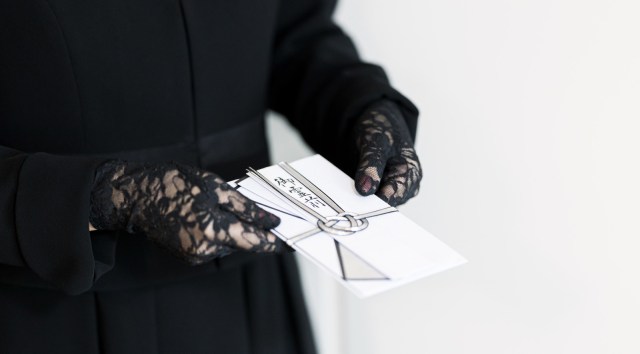
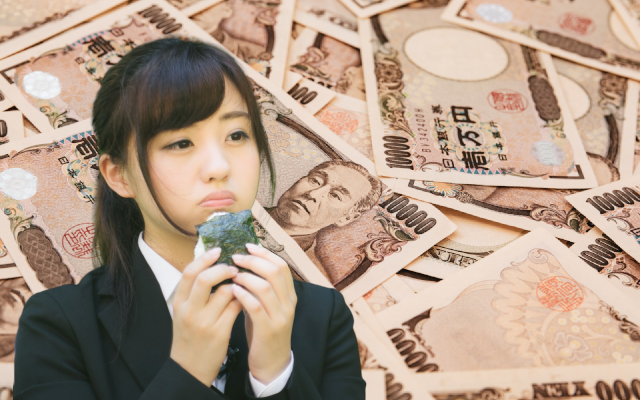

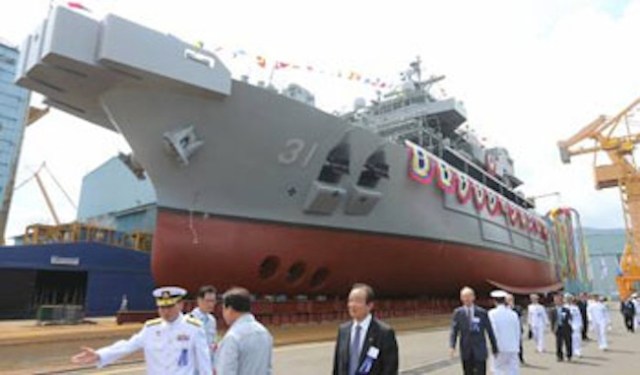
 Red light district sushi restaurant in Tokyo shows us just how wrong we were about it
Red light district sushi restaurant in Tokyo shows us just how wrong we were about it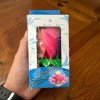 Celebrate another year of life by putting it in jeopardy with this birthday candle flower
Celebrate another year of life by putting it in jeopardy with this birthday candle flower McDonald’s new Happy Meals offer up cute and practical Sanrio lifestyle goods
McDonald’s new Happy Meals offer up cute and practical Sanrio lifestyle goods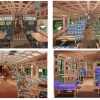 Beautiful Red and Blue Star luxury trains set to be Japan’s new Hokkaido travel stars
Beautiful Red and Blue Star luxury trains set to be Japan’s new Hokkaido travel stars Japanese ramen restaurants under pressure from new yen banknotes
Japanese ramen restaurants under pressure from new yen banknotes Historical figures get manga makeovers from artists of Spy x Family, My Hero Academia and more
Historical figures get manga makeovers from artists of Spy x Family, My Hero Academia and more Akihabara pop-up shop sells goods made by Japanese prison inmates
Akihabara pop-up shop sells goods made by Japanese prison inmates Japan’s massive matcha parfait weighs 6 kilos, contains hidden surprises for anyone who eats it
Japan’s massive matcha parfait weighs 6 kilos, contains hidden surprises for anyone who eats it French Fries Bread in Tokyo’s Shibuya becomes a hit on social media
French Fries Bread in Tokyo’s Shibuya becomes a hit on social media Pokémon Sleep camping suite and guestrooms coming to Tokyo Hyatt along with giant Snorlax burgers
Pokémon Sleep camping suite and guestrooms coming to Tokyo Hyatt along with giant Snorlax burgers All-you-can-drink Starbucks and amazing views part of Tokyo’s new 170 meter-high sky lounge
All-you-can-drink Starbucks and amazing views part of Tokyo’s new 170 meter-high sky lounge Studio Ghibli releases new action figures featuring Nausicaä of the Valley of the Wind characters
Studio Ghibli releases new action figures featuring Nausicaä of the Valley of the Wind characters New private rooms on Tokaido Shinkansen change the way we travel from Tokyo to Kyoto
New private rooms on Tokaido Shinkansen change the way we travel from Tokyo to Kyoto Studio Ghibli glasses cases let anime characters keep an eye on your spectacles
Studio Ghibli glasses cases let anime characters keep an eye on your spectacles Tokyo Tsukiji fish market site to be redeveloped with 50,000-seat stadium, hotel, shopping center
Tokyo Tsukiji fish market site to be redeveloped with 50,000-seat stadium, hotel, shopping center Beautiful Ghibli sealing wax kits let you create accessories and elegant letter decorations【Pics】
Beautiful Ghibli sealing wax kits let you create accessories and elegant letter decorations【Pics】 Studio Ghibli releases Kiki’s Delivery Service chocolate cake pouches in Japan
Studio Ghibli releases Kiki’s Delivery Service chocolate cake pouches in Japan New definition of “Japanese whiskey” goes into effect to prevent fakes from fooling overseas buyers
New definition of “Japanese whiskey” goes into effect to prevent fakes from fooling overseas buyers Our Japanese reporter visits Costco in the U.S., finds super American and very Japanese things
Our Japanese reporter visits Costco in the U.S., finds super American and very Japanese things Studio Ghibli unveils Mother’s Day gift set that captures the love in My Neighbour Totoro
Studio Ghibli unveils Mother’s Day gift set that captures the love in My Neighbour Totoro New Japanese KitKat flavour stars Sanrio characters, including Hello Kitty
New Japanese KitKat flavour stars Sanrio characters, including Hello Kitty More foreign tourists than ever before in history visited Japan last month
More foreign tourists than ever before in history visited Japan last month New Pokémon cakes let you eat your way through Pikachu and all the Eevee evolutions
New Pokémon cakes let you eat your way through Pikachu and all the Eevee evolutions Sales of Japan’s most convenient train ticket/shopping payment cards suspended indefinitely
Sales of Japan’s most convenient train ticket/shopping payment cards suspended indefinitely Sold-out Studio Ghibli desktop humidifiers are back so Totoro can help you through the dry season
Sold-out Studio Ghibli desktop humidifiers are back so Totoro can help you through the dry season Japanese government to make first change to romanization spelling rules since the 1950s
Japanese government to make first change to romanization spelling rules since the 1950s Ghibli founders Toshio Suzuki and Hayao Miyazaki contribute to Japanese whisky Totoro label design
Ghibli founders Toshio Suzuki and Hayao Miyazaki contribute to Japanese whisky Totoro label design Doraemon found buried at sea as scene from 1993 anime becomes real life【Photos】
Doraemon found buried at sea as scene from 1993 anime becomes real life【Photos】 Tokyo’s most famous Starbucks is closed
Tokyo’s most famous Starbucks is closed One Piece characters’ nationalities revealed, but fans have mixed opinions
One Piece characters’ nationalities revealed, but fans have mixed opinions We asked a Uniqlo employee what four things we should buy and their suggestions didn’t disappoint
We asked a Uniqlo employee what four things we should buy and their suggestions didn’t disappoint Princesses, fruits, and blacksmiths: Study reveals the 30 most unusual family names in Japan
Princesses, fruits, and blacksmiths: Study reveals the 30 most unusual family names in Japan Historical figures get manga makeovers from artists of Spy x Family, My Hero Academia and more
Historical figures get manga makeovers from artists of Spy x Family, My Hero Academia and more Akihabara pop-up shop sells goods made by Japanese prison inmates
Akihabara pop-up shop sells goods made by Japanese prison inmates Japan’s massive matcha parfait weighs 6 kilos, contains hidden surprises for anyone who eats it
Japan’s massive matcha parfait weighs 6 kilos, contains hidden surprises for anyone who eats it French Fries Bread in Tokyo’s Shibuya becomes a hit on social media
French Fries Bread in Tokyo’s Shibuya becomes a hit on social media Pokémon Sleep camping suite and guestrooms coming to Tokyo Hyatt along with giant Snorlax burgers
Pokémon Sleep camping suite and guestrooms coming to Tokyo Hyatt along with giant Snorlax burgers 11 different ways to say “father” in Japanese
11 different ways to say “father” in Japanese Sandwiches fit for a sumo served up in Osaka【Taste Test】
Sandwiches fit for a sumo served up in Osaka【Taste Test】 Tokyo Tsukiji fish market site to be redeveloped with 50,000-seat stadium, hotel, shopping center
Tokyo Tsukiji fish market site to be redeveloped with 50,000-seat stadium, hotel, shopping center Starbucks Japan adds a Motto Frappuccino to the menu for a limited time
Starbucks Japan adds a Motto Frappuccino to the menu for a limited time Standing sleeping pods coming to Tokyo cafe, promise to relieve fatigue and stress【Pics】
Standing sleeping pods coming to Tokyo cafe, promise to relieve fatigue and stress【Pics】 Mr. Sato presents the salad rice cracker showdown (no salads involved)【Taste test】
Mr. Sato presents the salad rice cracker showdown (no salads involved)【Taste test】 Shocking daylight smash-and-grab robbery occurs at shop in Tokyo’s fanciest neighborhood【Vid】
Shocking daylight smash-and-grab robbery occurs at shop in Tokyo’s fanciest neighborhood【Vid】 Japan’s lap-pillow ear-cleaning salons aren’t just for pervy guys, we find out
Japan’s lap-pillow ear-cleaning salons aren’t just for pervy guys, we find out